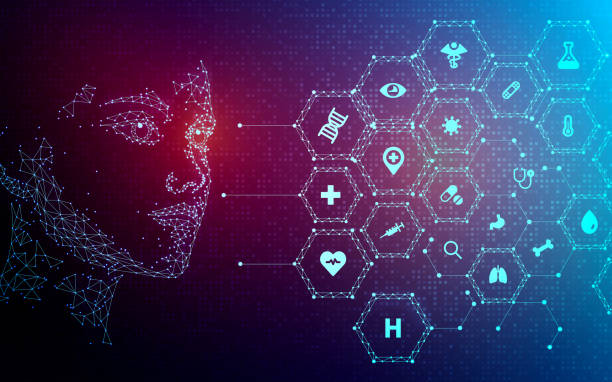Introduction:
Artificial Intelligence (AI) has rapidly grown in recent years, and it has become an essential tool in various industries. The healthcare industry is no exception, as AI is being used to improve patient outcomes, streamline operations, and reduce costs. In this article, we will explore the different ways that AI is being used in healthcare, its benefits, and the challenges that healthcare professionals may face when implementing AI.
What is Artificial Intelligence in Healthcare?
Artificial Intelligence in healthcare is the use of advanced technologies such as machine learning, natural language processing, and computer vision to analyze and interpret medical data. These technologies enable healthcare professionals to make more accurate diagnoses, predict potential health issues, and improve the overall quality of patient care.

How is AI being used in healthcare?
AI is being used in several areas of healthcare such as:
- Diagnosis: AI-powered diagnostic tools can analyze medical images, such as X-rays or MRI scans, to identify potential health issues. This can help doctors make more accurate diagnoses and reduce the number of misdiagnoses.
- Predictive Analytics: AI algorithms can analyze patient data to predict the likelihood of future health issues. This can help healthcare professionals identify at-risk patients and take preventative measures.
- Virtual Assistants: AI-powered virtual assistants can help patients schedule appointments, answer questions, and provide general health information.
- Operations: AI can be used to optimize hospital operations, such as managing patient flow and reducing wait times.
Benefits of AI in Healthcare
AI has the potential to improve patient outcomes, increase efficiency, and reduce costs. Here are some of the benefits of AI in healthcare:
- Improved Diagnosis: AI-powered diagnostic tools can analyze medical images and provide doctors with more accurate diagnoses. This can help reduce the number of misdiagnoses and improve patient outcomes.
- Predictive Analytics: AI algorithms can analyze patient data to predict the likelihood of future health issues. This can help healthcare professionals identify at-risk patients and take preventative measures.
- Virtual Assistants: AI-powered virtual assistants can help patients schedule appointments, answer questions, and provide general health information.
- Operations: AI can be used to optimize hospital operations, such as managing patient flow and reducing wait times.
Challenges of AI in Healthcare
AI has the potential to revolutionize the healthcare industry, but there are also several challenges that healthcare professionals may face when implementing AI. Some of these challenges include:
- Data Quality: AI algorithms require large amounts of data to work effectively. Healthcare professionals may need to ensure that the data they use is accurate and complete.
- Data Security: AI algorithms process sensitive patient information. Healthcare professionals will need to ensure that patient data is protected from unauthorized access and data breaches.
- Ethical considerations: There are several ethical considerations that must be taken into account when using AI in healthcare. For example, AI algorithms must be transparent, explainable, and fair, and must not discriminate against any group of people.
Conclusion
Artificial Intelligence has the potential to revolutionize the healthcare industry, but it is important for healthcare professionals to be aware of the challenges that may arise when implementing AI. By understanding the benefits and challenges of AI, healthcare professionals can make informed decisions about how to use AI to improve patient outcomes, increase efficiency, and reduce costs. With the right approach, AI can be a powerful tool for improving healthcare for everyone.

